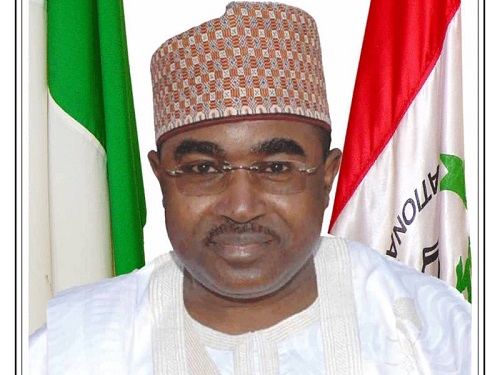Chairman/Chief Executive Officer of the National Drug Law Enforcement Agency, NDLEA, Brig. Gen. Mohamed Buba Marwa (Retd) has harped on the imperative of an alternative development strategy to curtail illicit drug production, trafficking and protect the environment from exploitation by drug cartels.
Marwa stated this while highlighting the need for concerted and collaborative efforts in curbing illicit drug trafficking at an NDLEA Special Purpose Committee meeting on Alternative Development project in Nigeria, held at the national headquarters of the Agency in Abuja, on Thursday 14th December 2023. The same position was canvassed by other experts from the United Nations Office on Drugs and Crime, UNODC office in Vienna, Austria and Nigeria as well as other stakeholders across the country who spoke at the meeting.
“Without doubt, illicit drug cultivation and production have contributed significantly, not only in threatening the national and global security but also in modifying the natural ecosystem with severe consequences evidenced in environmental degradation which has impacted negatively on the climate and human health”, he declared.
While spotlighting the record of achievements of the agency as evidenced in huge seizures of assorted illicit drugs, destruction of large hectares of cannabis plantations, dismantling of clandestine laboratories, arrest and prosecution of high profile suspects and confiscation of valuable assets, Marwa emphasized on the need to provide sustainable alternative means of livelihood for illicit drug traffickers.
“Now that they are fast losing ground in the illicit drug business as a result of heavy clamp down on them, they may go into other crimes. We therefore need to provide sustainable alternative means of engaging them so that we do not recycle illicit drug dealers in the world of crime.”
The NDLEA boss who was represented by his Special Adviser on National Drug Control Master Plan, NDCMP, Otunba Lanre Ipinmisho, identified crop substitution as well as education as vital tools that will be employed by the agency towards achieving the objectives of the Alternative Development programme. “In our efforts to provide people-centered sustainable and legitimate alternatives to illicit drugs, we will set up structures to provide education to the people on the dangers that illicit drug cultivation and production pose to security and the environment. Also, as part of our crop substitution programme, we will develop strategies to attract investments into Alternative Development projects through public-private partnership, particularly in the agricultural sector.”
He also noted the importance of community buy-in as a key element for a successful programme. “We must engage members of the grassroots, youths and women groups, traditional and religious leaders and some other influential personalities in the public and the private sectors for effective partnership support in order to achieve our desired success in the implementation of the alternative development.”
In his remarks, the UNODC’s consultant on Alternative/Sustainable Livelihoods Team in Vienna, Austria, Dr. Jorrit Kamminga, commended NDLEA as one of the pioneer anti-narcotics agencies that are including Alternative Development in their initiatives to fight illicit drug trafficking.
According to him, “I think Nigeria can effectively play a leading role in Africa when it comes to showing how alternative development and similar alternative livelihood initiatives can help to deal with illicit cannabis cultivation as well as with other challenges of the world drug problem. In fact, you can play the role of spearheading by showing other African countries who (perhaps except for Morocco) have limited experience with alternative development. I think Nigeria could also play a leading role if it takes on board the importance of the environment and biodiversity from the start.”
While attesting to the timeliness of the NDLEA in pursuing Alternative Development as a line of action, which coincided with the 10th anniversary of the United Nations Guiding Principles on Alternative Development, Dr. Kamminga emphasized the need for inclusionary measures to be considered for a sustainable programme.
“Social cohesion, inclusivity and cooperative efforts going beyond traditional family units are crucial to building meaningful resilience against poverty, conflict and instability. An important success factor of alternative development in this regard has been the promotion of associativity. Producers’ associations or farmers’ organizations are critical not only to facilitating farmers’ shift to licit crop cultivation, but also to protecting their long-term commercial interests against counter-productive incentives created by possible short-term but unsustainable profits”, he stated.
Other experts who made presentations on alternative development at the meeting include Engr. Nurudeen Aderinto; Dr. Jonah Kolo; Julius Bawa Parah; Prof. Oluwatoyin Odeku; Dr. Nkereuwem Williams Ebiti and Dr. Martins Agwogie.






